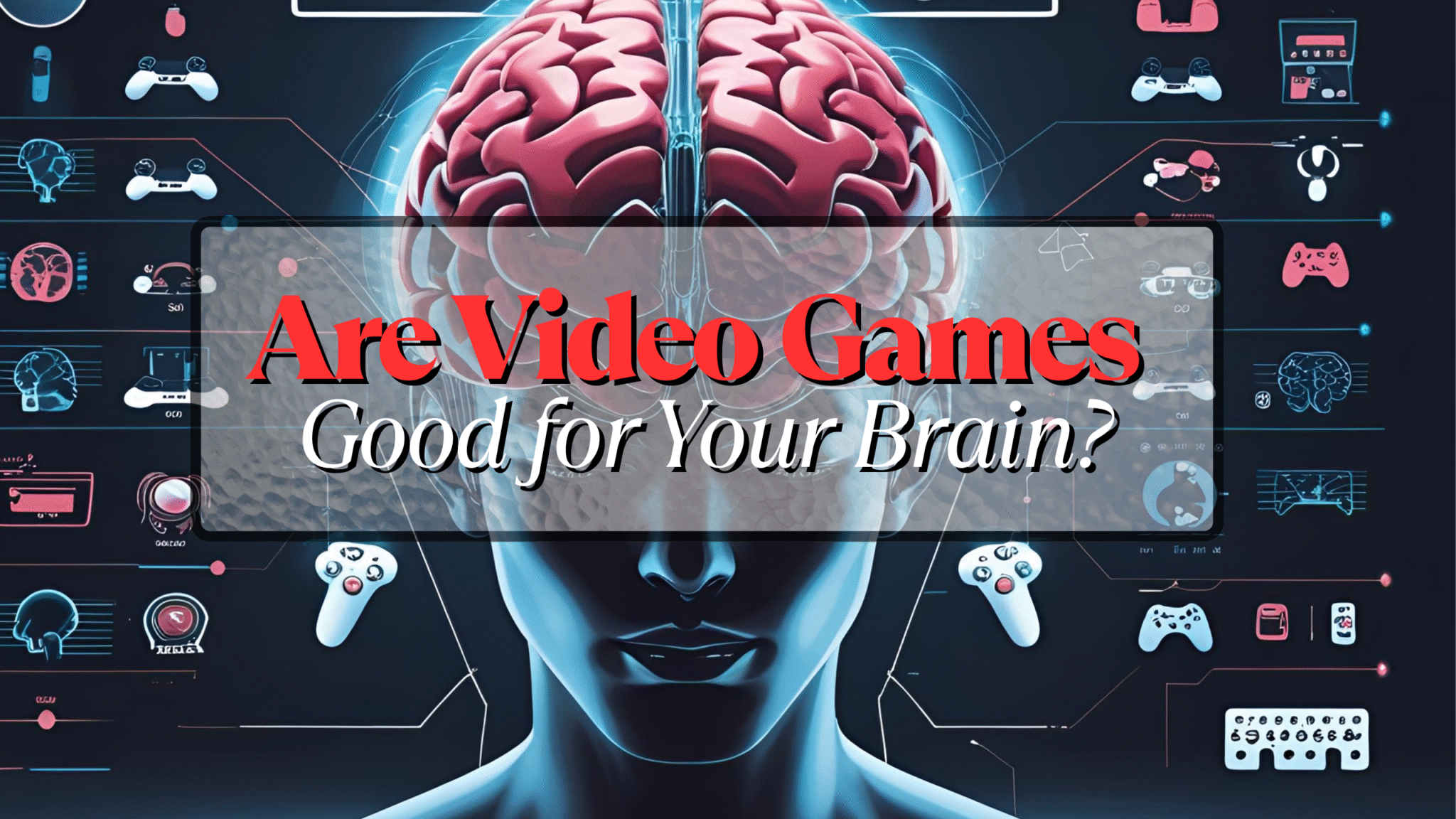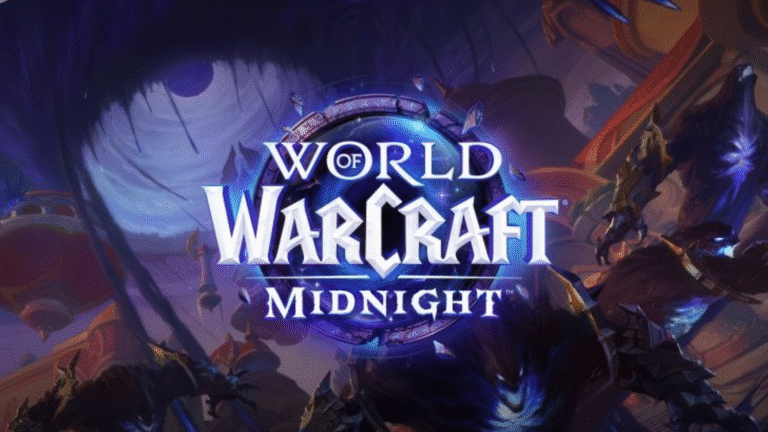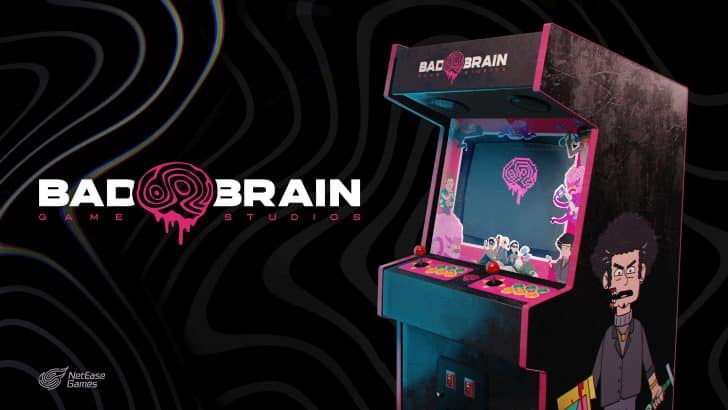
|
Getting your Trinity Audio player ready...
|
In a world where digital entertainment has become a staple in our daily lives, one question keeps surfacing among parents, educators, and even health professionals: Are video games actually good for your brain? Science is starting to say yes — with some conditions.
At first, when video games became more popular and widely discussed, many professionals claimed that games were harmful — saying they killed creativity in kids or made them think that what they did in games could be done in real life. But that has already been proven wrong. Games actually help both children and adults become more creative, and the vast majority have no trouble separating fantasy from reality. Of course, there are exceptions — just like there are good and bad people, there are individuals with mental disorders who may act out game behavior. But that’s not because of games — it’s due to underlying mental health issues.
🎮 Level Up Your Game with Our Patreon! 🎮
- 📚 Early Access to Full Guides: Get personalized guides for your favorite games before anyone else.
- 🔍 Exclusive Analyses: Deep dives into top teams and game strategies just for you.
- 🏆 Join Tournaments: Compete in tournaments with cash prizes and exclusive in-game items.
- 💥 Be the First: Access the latest news and updates in the gaming world.
👉 Don’t miss out—join our Patreon today and become the ultimate gamer!

The Cognitive Benefits of Gaming
According to Dr. Joseph Austerman, a child psychiatrist, the benefits depend on the type of game being played. Action games can improve hand-eye coordination and attention, while strategy games like Civilization or City Skylines enhance critical thinking and planning.
“We tend to find that visuospatial effects, like hand-eye coordination, and directed attention tend to get a little better when we’re playing video games,” says Dr. Austerman.
While these skills improve during gameplay, translating them to real-world tasks is still uncertain. That said, many players report mental and even physical improvements simply from gaming. And as most people now realize, more kids are learning foreign languages (like English) through games than through traditional classroom materials.
Social Skills in a Digital Age
Many people assume gamers are antisocial, but that’s simply not true. There used to be a stereotype that gamers were overweight kids living in their parents’ basements. That no longer applies — today, everyone plays, from celebrities to adults and teenagers.
Video games actually help bring people together from around the world. Players often need to talk and collaborate with others online — and even offline. How many times have you been in a conversation where someone brings up a game, and suddenly the whole group is talking about it? Many friendships start this way.
Gaming has become a culture. Gamers love discussing their favorite titles, meeting like-minded people, and building communities. The more it grows, the more tech improves, and the more people get involved.
“Video games can actually improve social connectedness,” Dr. Austerman explains. “What kids are able to do now is connect to people around the world that share their interests.”
That said, Dr. Austerman also warns parents to supervise online interactions to prevent cyberbullying and exposure to inappropriate content.
Brain Growth and Emotional Rewards
Dr. Michael Manos, a pediatric behavioral health specialist, compares video games to stimulants — they can increase grey matter in the brain, leading to better interconnectivity, memory, and emotional regulation.
Games also reward creativity and task completion. Role-playing games (RPGs) like Mass Effect or Baldur’s Gate 3 let players choose their path, make mistakes, and learn from them. This builds imagination and provides regular feelings of achievement.
“The danger of a particular situation and the resolution gives you a sense of accomplishment, which doesn’t happen very much in real life,” says Dr. Manos.
Improving Multitasking and Memory
This shouldn’t even be up for debate — any gamer knows they have a lot to manage in-game. Especially in RPGs, where players must remember quests, weapons, armor, skills, and how to counter enemy moves. That requires serious memory skills and multitasking.
Even players who aren’t hardcore learn to master complex systems — from understanding map layouts to learning what each item does. Every game has its own mechanics and choices, and players naturally learn and retain all this to improve.
The same goes for fighting games, where combos and button inputs need to be memorized. It’s not necessarily difficult — but it’s definitely complex. And unless you’re truly engaged with the game, you won’t grasp what’s going on, even in beginner-friendly titles. When the game gets harder, you either learn or you get stuck.
Education Through Exploration
Educational elements in games are increasing. Take Assassin’s Creed’s “Discovery Tour” mode — players explore historical locations in beautifully designed, interactive 3D environments. According to Dr. Austerman, these immersive experiences engage multiple senses, making learning more effective and memorable.
When Gaming Becomes Too Much
While games can be beneficial, they can also become addictive. Only about 3% of the global population suffers from gaming addiction. Still, symptoms like mood swings, irritability, and withdrawal from real-life activities are red flags.
A 2022 Oxford study found that gaming isn’t harmful to mental health — unless someone struggles to stop. Emotional outbursts when asked to turn off the game can be a sign of unhealthy attachment. But let’s be clear: just because your kid gets upset when asked to stop doesn’t mean they’re addicted.
There are many variables. For example, in competitive online games, quitting mid-match can lead to penalties — so it’s normal for players to want to finish first. Also, young children naturally react strongly when their fun is interrupted — just like someone would get upset if you turned off their favorite show or took away a book mid-chapter.
Addiction means someone can’t stop playing — to the point where it negatively impacts their life and relationships. And while we all go through phases where we’re obsessed with a certain game, that’s not necessarily addiction. It only becomes concerning when someone can’t do homework, hold a conversation, or focus on anything else because they’re fixated on gaming.
Even pro gamers once had to play 24/7 to reach the top. So yes, there’s healthy and unhealthy “addiction” — the key is recognizing the difference.
Setting Healthy Limits
Experts recommend setting clear screen time limits, especially for young children:
- Under 2 years: No screen time
- Ages 3–5: Max 1 hour on weekdays, 3 hours on weekends
- 6 and older: Up to 2 hours daily, adjustable based on each child’s needs
Violent content is another concern. While no direct link has been found between violent games and real-world aggression, early exposure might reduce empathy or increase anxiety. That’s why parents should follow ESRB ratings and choose age-appropriate games.
Playing Together Makes a Difference
One of the best ways for parents to monitor and connect with their kids is to play games with them.
“Just like family board game night, playing the same video game together can have real bonding benefits,” says Dr. Austerman. “Whenever you marry video games with in-person interactions, there’s a benefit.”
Final Thoughts
Video games aren’t good or bad by themselves. Like any tool, their value depends on how and by whom they’re used. Just like a pencil can be used to write or harm, games can be positive or negative depending on intent and context.
There are dangers on the internet, of course — that’s why monitoring content for younger children is essential. But games offer major cognitive benefits, help strengthen family bonds, and bring joy, creativity, and learning to people of all ages.
As Dr. Austerman puts it:
“A parent’s job should be to moderate their child’s exposure, watch out for dangers and use this time to connect with their kids. It’s a good time to meet them where they’re at.”





